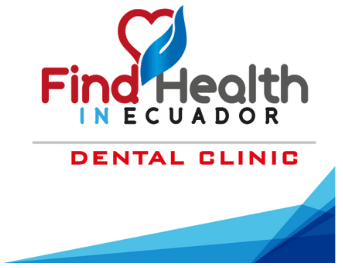Table of Contents
When it comes to daily life, there are significant differences between living in Cuenca, Ecuador and the United States. From cultural norms to healthcare systems, here is a comparison of what daily life looks like in each country.
Cultural Norms
One of the most noticeable differences between daily life in Cuenca and the US is the cultural norms. In Cuenca, family is central to daily life and it is common for multiple generations to live together. This close-knit family structure is reflected in the strong sense of community that exists in Cuenca.
In contrast, the US is more individualistic and people tend to live independently from their extended families. This can lead to a greater emphasis on personal achievement and success in the US, as opposed to the collective well-being of the community.
Healthcare System
Another significant difference between daily life in Cuenca and the US is the healthcare system. In Cuenca, healthcare is more affordable and accessible compared to the US. The public healthcare system in Ecuador provides free or low-cost medical services to all residents, regardless of their income level.
On the other hand, healthcare in the US is often costly and can be a barrier to access for many people. The US does not have a universal healthcare system, which means that individuals are responsible for obtaining their own health insurance coverage or paying out of pocket for medical expenses.
Cost of Living
The cost of living in Cuenca is significantly lower than in the US, making it an attractive destination for expats and retirees. Housing, food, and transportation are all more affordable in Cuenca, allowing people to live comfortably on a lower income.
In contrast, the cost of living in the US can be much higher, especially in major cities. Housing prices, healthcare costs, and education expenses can all add up, making it difficult for some people to make ends meet.
Transportation
Transportation in Cuenca is primarily done through walking, biking, or public transportation. The city is pedestrian-friendly and has a well-developed bus system that makes it easy to get around without a car. Taxis are also readily available and affordable for longer trips.
In the US, transportation options vary depending on where you live. In major cities, public transportation is common and widely used. However, in suburban and rural areas, owning a car is often necessary for getting around.
Food and Cuisine
The food culture in Cuenca is centered around fresh and locally sourced ingredients. Markets are abundant with fruits, vegetables, and meats, making it easy to eat healthy and affordably. Traditional Ecuadorian dishes like ceviche, llapingachos, and hornado are popular choices for locals and expats alike.
In the US, there is a wide variety of cuisines available due to the country’s diverse population. Fast food and convenience foods are also prevalent, making it easy to grab a quick meal on the go. However, the US also has a growing movement towards organic and locally sourced foods, similar to the food culture in Cuenca.
Education System
The education system in Cuenca is similar to that of the US, with both countries offering public and private schools at all levels. However, in Cuenca, the cost of education is much lower and many schools provide free or low-cost tuition to residents.
In the US, the cost of education can be a significant barrier for many families. College tuition, in particular, is often prohibitively expensive, leading some students to take on large amounts of debt in order to pursue higher education.
Conclusion
Overall, daily life in Cuenca and the US have their own unique challenges and benefits. While Cuenca offers a more affordable and community-oriented lifestyle, the US provides greater opportunities for personal and professional growth. Ultimately, the choice of where to live comes down to individual priorities and preferences.
FAQs
Q: Is healthcare in Cuenca of good quality?
A: Yes, healthcare in Cuenca is of good quality, with many hospitals and clinics providing modern medical services.
Q: Are there English-speaking schools in Cuenca?
A: Yes, there are several English-speaking schools in Cuenca that cater to expat families.
Q: What is the cost of living like in Cuenca compared to the US?
A: The cost of living in Cuenca is significantly lower than in the US, with housing, food, and transportation all being more affordable.
Q: Are there job opportunities for expats in Cuenca?
A: Job opportunities for expats in Cuenca are limited, but some expats find work teaching English or working remotely for companies in their home country.
Adam Elliot Altholtz serves as the Administrator & Patient Coordinator of the “Find Health in Ecuador Dental Clinic”, along with his fellow Expats’ beloved ‘Dr. No Pain’, right here in Cuenca, Ecuador, and for purposes of discussing all your Dental needs and questions, is available virtually 24/7 on all 365 days of the year, including holidays. Adam proudly responds to ALL Expat patients from at least 7:00am to 9:00pm Ecuador time, again every single day of the year (and once more even on holidays), when you write to him by email at [email protected] and also by inquiry submitted on the Dental Clinic’s fully detailed website of www.findhealthinecuador.com for you to visit any time, by day or night. Plus, you can reach Adam directly by WhatsApp at +593 98 392 9606 or by his US phone number of 1‐(941)‐227‐0114, and the Dental Clinic’s Ecuador phone number for local Expats residing in Cuenca is 07‐410‐8745. ALWAYS, you will receive your full Dental Service in English (NEVER in Spanish), per you as an Expat either living in or desiring to visit Cuenca by your Dental Vacation, plus also to enjoy all of Ecuador’s wonders that are just waiting for you to come arouse and delight your senses.
